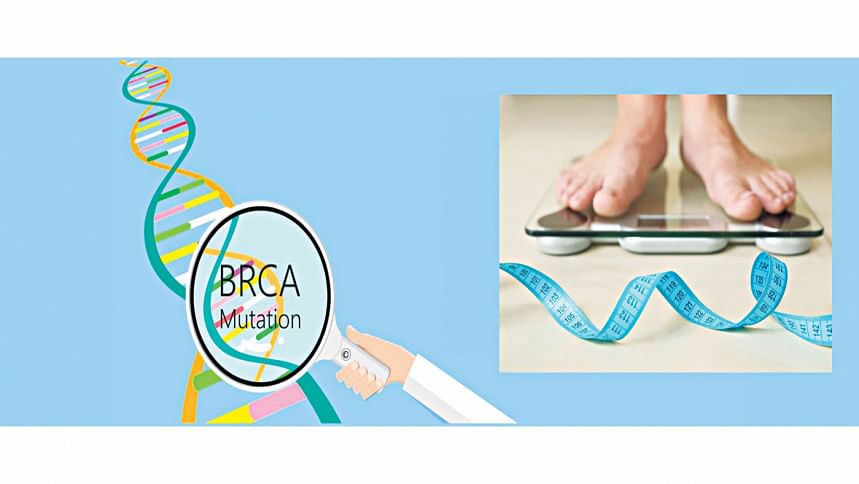Obesity may increase cancer risk for those with BRCA mutations

A recent study published in Science Translational Medicine aimed to investigate the impact of obesity on breast cancer risk in women with BRCA mutations. The researchers analysed breast tissue samples from 69 women carrying BRCA mutations and found that those with a higher body mass index (BMI) had a greater risk of DNA damage. Genetic studies revealed that obesity-related changes in gene expression were linked to DNA damage, with hormone pathways possibly playing a role.
To further explore these findings, the researchers conducted experiments using mouse models. They fed half of the mice a high-fat diet (HFD) and the other half a low-fat diet (LFD). The obese mice on the HFD exhibited similar biological changes in their breast tissue as women with a BMI over 25. These mice also experienced increased DNA damage and developed mammary tumours earlier when exposed to cancer-promoting substances. While no significant DNA damage was observed in ovarian tissue, the fallopian tubes showed increased damage, potentially associated with ovarian cancer.
In conclusion, this study established a positive association between increased BMI and DNA damage linked to breast cancer risk in BRCA mutation carriers without a personal history of cancer.
Additionally, individuals who were not obese but had obesity-related markers, such as insulin resistance, may also face a higher risk. The research suggests that managing weight and addressing hormone pathways could be potential strategies to reduce the risk of breast cancer in women with high-risk genetic mutations. Moreover, the findings open the door to exploring the use of weight management medications in cancer prevention for this specific population.

 For all latest news, follow The Daily Star's Google News channel.
For all latest news, follow The Daily Star's Google News channel. 




Comments